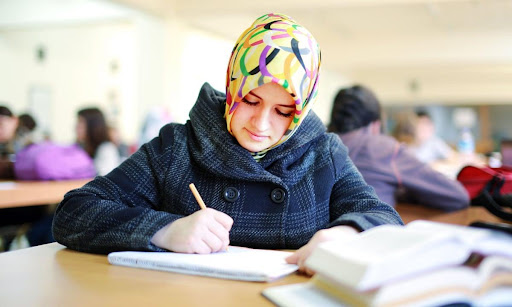Despite the recognition of women’s rights in Islamic teachings, there are still challenges women face in obtaining equality, such as cultural barriers and societal attitudes.
However, over the years, many Muslim women have made significant strides toward empowerment through education, activism, and leadership roles.
In this article, we will explore the challenges and achievements of empowering women in Islam, highlighting the voices of some Muslim women who have broken down barriers to pave the way for future generations.
Pre-Islamic Arabian society and treatment of women
In pre-Islamic Arabian society, women were generally considered to be inferior to men and were often subjected to various forms of discrimination and mistreatment. Also, Women had limited rights when it came to property ownership, inheritance, marriage, divorce, and other aspects of life.
However, with the advent of Islam and the teachings of Prophet Muhammad (peace be upon him), significant progress was made in terms of women’s rights. The Quran contains several verses that emphasize the importance of treating women with respect and dignity, and not discriminating against them based on their gender.
The Prophet himself also set an example by treating women fairly and justly, and by advocating for their rights and well-being. He encouraged women to seek knowledge and education and recognized their important roles as wives, mothers, and members of society.
Some of the specific rights that were granted to women during the time of the Prophet include the right to own property, the right to inherit from their parents, husbands, and other relatives, the right to seek a divorce under certain circumstances, and the right to participate in public life and express their opinions.
Overall, the teachings of Prophet Muhammad helped to significantly improve the status and rights of women in Arabia and beyond, and continue to serve as a source of inspiration for those striving for gender equality today.
To Explore more information about Islamic studies follow this link
Importance of empowering women in Islam

Empowering women in Islam is important for several reasons:
1. Islamic teachings emphasize the importance of gender equality and justice. Empowering women aligns with these values and principles.
2. Women play a crucial role in society, and their empowerment can lead to positive social and economic outcomes. When women are empowered, they can contribute to their families and communities in meaningful ways, which can lead to social and economic development.
3. Empowering women in Islam can help reduce poverty and improve the standard of living for families. When women have access to education, employment, and financial resources, they are better equipped to lift themselves and their families out of poverty.
4. Empowering women can also lead to better health outcomes. When women have access to healthcare and education, they are more likely to make informed decisions about their health and the health of their families.
5. Empowering women in Islam aligns with the broader goal of achieving sustainable development. The United Nations Sustainable Development Goals recognize the importance of gender equality and women’s empowerment in achieving sustainable development.
In brief, empowering women in Islam is essential for upholding the principles of equality and justice that are central to Islamic teachings, challenging stereotypes about Muslim women, and promoting the well-being of society as a whole.
Challenges of empowering women in Islam
Empowering women in Islam has been an ongoing struggle that has faced various challenges. Here are some of the challenges in empowering women in Islam:
Cultural and traditional barriers
Many cultural practices that are not necessarily Islamic have been imposed on women, which limits their ability to fully participate in society. These practices include early marriage, female genital mutilation, and the seclusion of women.
Misinterpretation of Islamic texts Some Islamic texts have been misinterpreted to justify the oppression of women, which has led to discriminatory practices against women. This has been a significant challenge in many Muslim communities. To find out more about proper Quran learning follow this link
Lack of education
The lack of education among women in many Muslim countries has limited their access to information and resources, making it difficult for them to become empowered.
Political and legal challenges
Women’s rights are often limited by discriminatory laws and policies that restrict their participation in political and economic decision-making. Women also face challenges in accessing justice and legal protections.
Achievements of empowering women in Islam

Empowering women is an important aspect of Islam, and many achievements can be attributed to this effort. Some of the key achievements of empowering women in Islam include:
1. Women’s Rights to Education
Islam encourages both men and women to seek knowledge, and throughout history, Muslim women have played an important role in contributing to fields such as medicine, mathematics, and philosophy.
2. Economic empowerment
Islam recognizes women’s right to own property and engage in business activities. Prophet Muhammad’s first wife, Khadija, was a successful businesswoman who owned her own trading company.
3. Social Empowerment of Women in Islam
Islamic teachings emphasize the importance of treating women with compassion, respect, and dignity. This has led to the creation of a supportive community for women within Islamic societies.
4. Political empowerment
Throughout Islamic history, women have held prominent positions of leadership, including serving as advisors to ruling caliphs.
5. Legal Empowerment of Women in Islam
Islamic law provides women with legal protections, including the right to inherit property, the right to divorce, and the right to seek justice in court. So empowering women in Islam is an essential part of Islamic teachings, and the achievements of women in Islamic societies reflect this emphasis on gender equality and justice.
In conclusion, Islam has a rich history of advocating for the rights and empowerment of women. The teachings of Prophet Muhammad catalyzed improving the status of women in Arabian society and continue to inspire people around the world to this day.
By supporting organizations like Bonyan Academy, an online Quran learning academy dedicated to providing women with access to Islamic education, we can ensure that future generations of Muslim women have the tools and knowledge necessary to achieve their full potential and make positive contributions to society. So let us all play our part in building a more just and equitable world for all.









